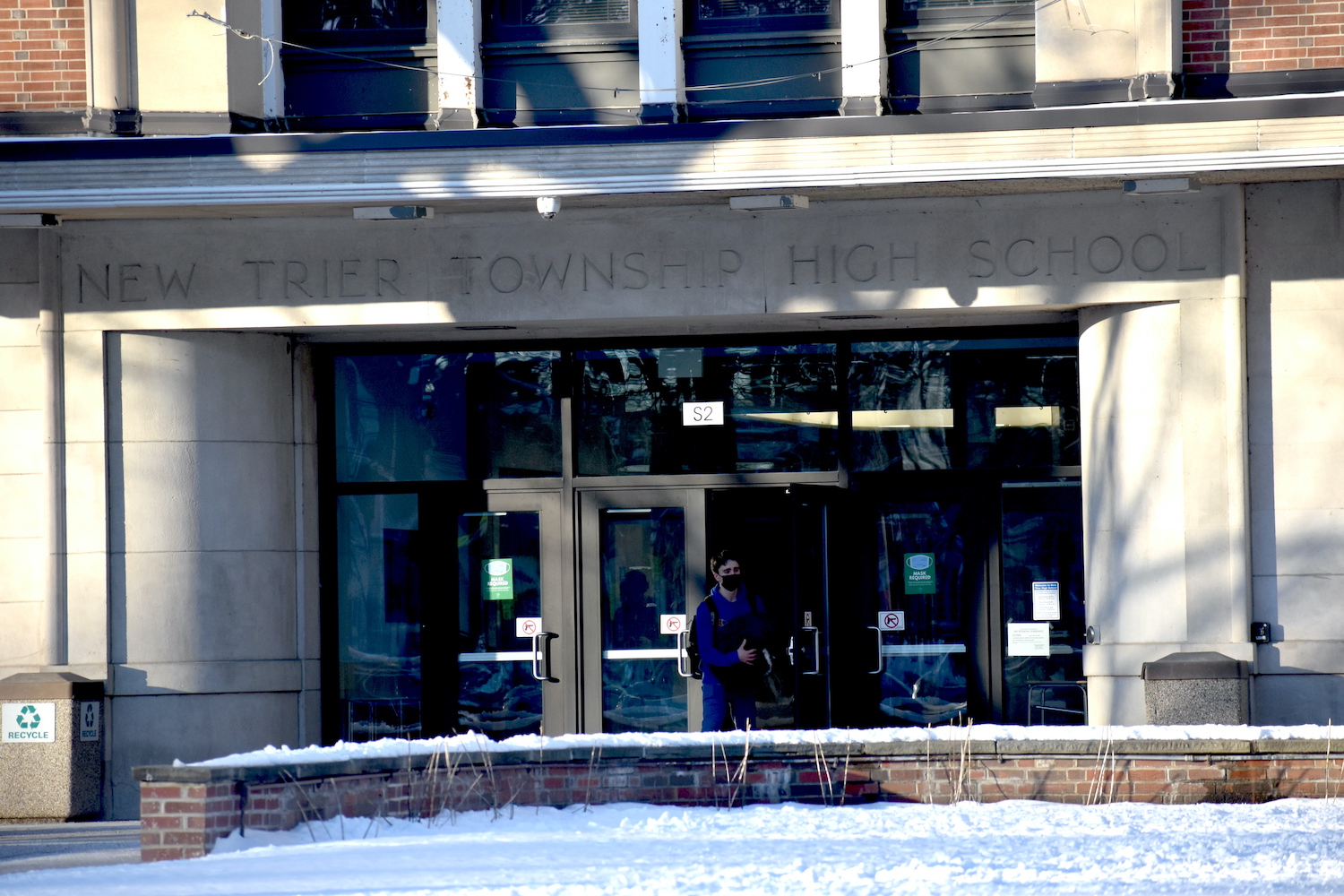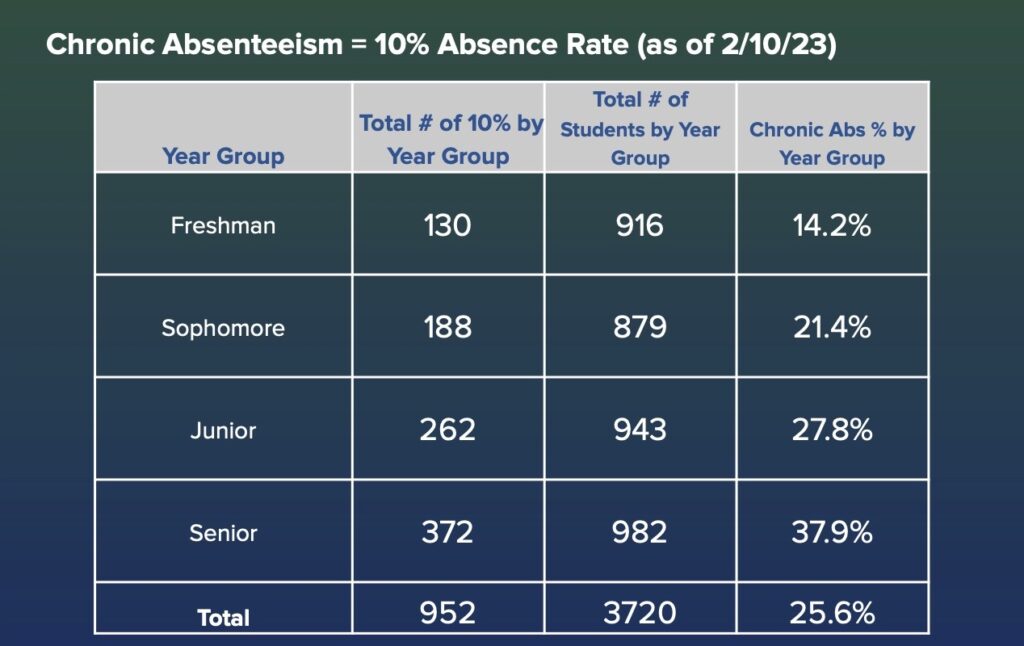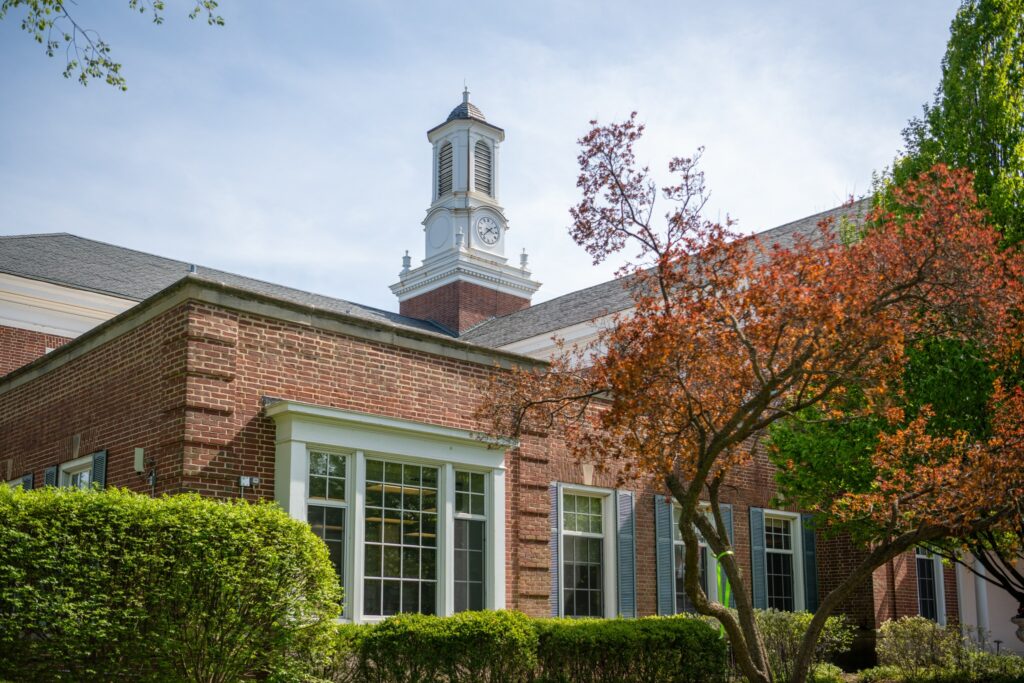
1 in 4 New Trier students — and about 2 in 5 seniors — are ‘chronically absent,’ according to district data
Administration, School Board working to address surging trend that has affected schools nationwide
New Trier High School’s modern facility improvements in recent years have created more space for students throughout the building.
But another factor is contributing to the openness as well: fewer students.
New Trier is seeing a surge in absenteeism, an issue broken down by administrators on Tuesday, Feb. 21, during the most recent board of education meeting.
Joanne Panopoulos — the district’s assistant superintendent for special education and student services — led the presentation and said New Trier is experiencing its highest rate of chronic absences, which is defined by the state as missing 10 percent of school days.

At New Trier, more than a quarter (25.6%) of the student population has missed at least 10 percent of school this school year (as of Feb. 10). And for seniors, that number leaps to nearly 40 percent (37.9%, or 372 students).
Absence data includes both excused and unexcused absences, officials said, adding, however, that they are uniquely addressed by school staff. Missing 3-4 class periods counts as a half day absent, and between 5-10 periods as a full day.
Chronic absenteeism through Feb. 10 meant a student had missed at least 10 days. For an entire school year, it is 18 days — or about two days a month.
While administrators did not provide data from previous years, Northfield Principal Paul Waechtler said the senior statistic is the highest the school has seen.
Panopoulos also said New Trier is not alone, citing discussions with leaders from neighboring districts, as well as national peers, who are experiencing a similar trend. In October 2022, Chalkbeat — a nonprofit newsroom focusing on education — explored the increase in absenteeism as a national trend.
According to the article, data from the 2020-’21 school year showed a dramatic increase in chronic absenteeism all over the country— up 27 percent in New York City and nearly doubling in the Las Vegas area .
The article cited a pre-pandemic study from the University of Delaware that linked chronic absenteeism to lower academic achievement, school disengagement and more.
New Trier administrators presented the School Board with a wireframe for how they will address the problem, pledging to return to the March meeting with a more detailed plan.
“I want to stress that we work as a team on this,” Panopoulos said, “and really think about what is the function of why a student may be having difficulty attending school. But we also make sure, regardless of why that student isn’t attending school, we’re instilling that accountability.”
Panopoulos and company also listed the positives of regular attendance for students and the consequences of chronic absenteeism for educators.
According to the presentation, attendance in the classroom improves growth, increases a sense of belonging and engagement, and develops resilience and good habits for the future.
Waechtler said chronic absenteeism is a burden on educators and at the current rate (25.6%), a teacher rarely has a full classroom and must provide followup support to about 30 students.
The school’s response plan will include earlier intervention with students with multiple absences, better communication with families about attendance matters, and identification of the root cause of chronic absenteeism.
Prior to the next board meeting on March 20, Panopoulos said administration will meet with an attendance committee, which she said is made up for more than 20 district community members. Administrators will also have a more detailed plan to address the issue.
School board members want to see chronic absenteeism data from previous years to see how it has evolved at the high school and how it compares to peer schools.
Superintendent Dr. Paul Sally said he believes the chronic absenteeism rate was “in the teens” prior to the onset of the COVID-19 pandemic.
The Record is a nonprofit, nonpartisan community newsroom that relies on reader support to fuel its independent local journalism.
Become a member of The Record to fund responsible news coverage for your community.
Already a member? You can make a tax-deductible donation at any time.

Joe Coughlin
Joe Coughlin is a co-founder and the editor in chief of The Record. He leads investigative reporting and reports on anything else needed. Joe has been recognized for his investigative reporting and sports reporting, feature writing and photojournalism. Follow Joe on Twitter @joec2319


